The place where my youth bloomed
Cuky
Biohealth
Cornell University,USA
Pao School is the place where my youth bloomed. I miss the campus, the lovely people of Pao School, the days and nights we spent together, and what we wrote there together.
——Cuky
Getting to know Pao School
The first time Cuky set foot on the Pao School campus, she was charmed by the picturesque setting, refined atmosphere, and friendly students. As she saw students running on the playground wearing short-sleeved shirts and shorts, splashing in the swimming pool and heard the melodious performance of the orchestra, she couldn’t help but feel pleasantly surprised. Cuky was also inspired by Pao School’s philosophy of whole person education because it encapsulated what she had always sought in her studies: to edify herself while staying true to her interests.
Cuky found that the Pao School environment was quite different from her previous experience, from the teaching style to after-school activities to students’ management of personal time. She found the classes to be highly interactive, as teachers do not merely lecture students but seek to inspire their intellectual curiosity. For instance, the “learner community” model in IB Chinese class allows students to work together in groups and thus explore deeper and more diverse ideas.

Cuky’s favourite spot at the school
Cuky’s teacher, Ms. Sandy Min, notes that when Cuky’s class studied the Cao Yu play “Thunderstorm”, the classroom materials were selected to show different perspectives and students were asked to contribute their own opinions about the play. As it turned out, the students had many unique perspectives on different aspects of the play, sparking discussions that brought out the best in both the students and teachers.
Cuky notes that it is also important to prepare adequately for class, as in doing so students can make the most of opportunities to participate in classroom discussion. She recalls that in her early days at Pao School, the many group projects, after-school assignments, and co-curricular activities for which students had to take responsibility surprised her.
“In the past, I was used to being reminded to complete various of tasks,” she says. “But after coming to Pao School, I found I had to take responsibility for completing my own assignments, especially with after-school projects with long timelines.”
In her early days at Pao School, Cuky had a hard time balancing this, as she was not used to managing her own time. But after a while, she got the hang of it. To improve her time management skills, she asked her classmates who had been with the school since the beginning how they did it. They were very willing to share their experience and advice. Their suggestions included using software to track self-discipline, establishing project timelines for assignments, and most importantly, not procrastinating.
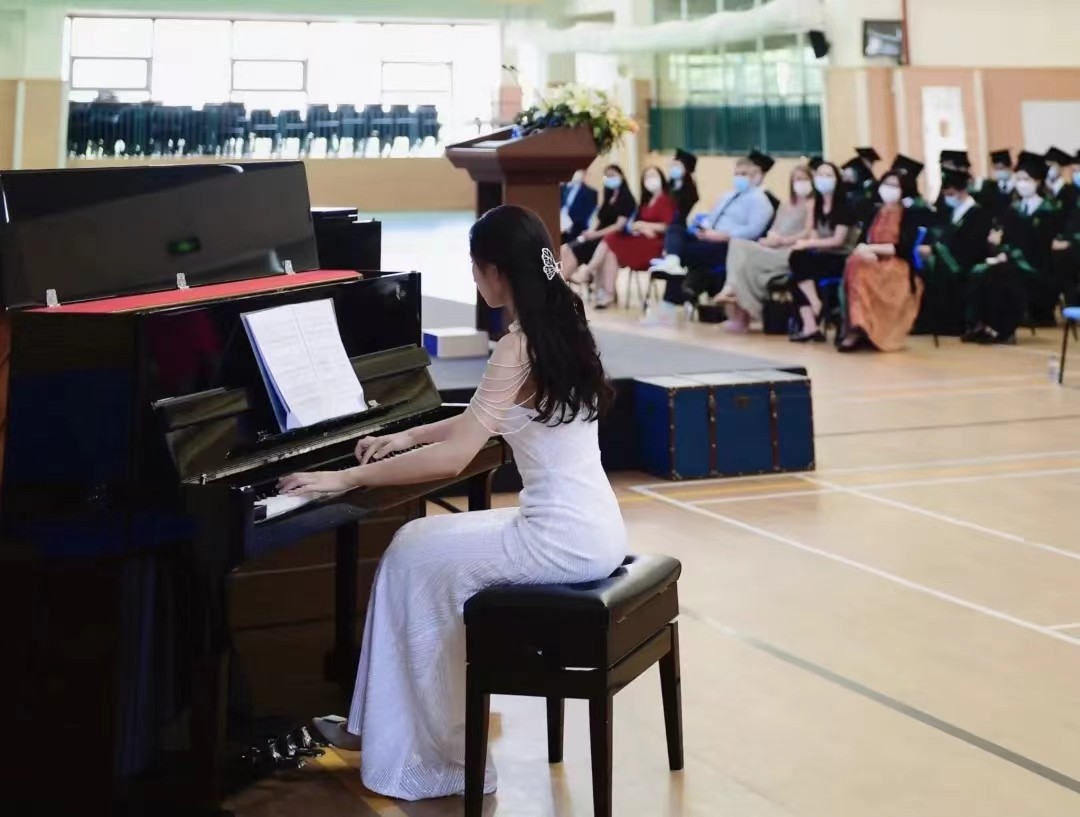
Cuky performing the duet “Free Tango” with classmate Yolanda
Cuky’s mother, who has seen firsthand the many positive changes in her daughter, comments, “The biggest change in Cuky after she came to Pao School was that she became an active instead of a passive learner. She set goals for her education and has discovered her academic interests. Most importantly, she gained the courage to try all kinds of new things, things that she once considered beyond her ability, such as public speaking. Cuky found at Pao School that these things are not so hard after all – if you keep at it. As a mother, it has been deeply rewarding to see my daughter become more optimistic, confident, and mature by the day.”
A bond with the natural world
As she looks to the future, Cuky has chosen biohealth as her likely course of study at the university due to her interest in neuroscience, physiology, and public health. Regarding her interest in biology, Cuky says that her former teachers of the subject at Pao School, Mr. Steven Varty and Mr. Michael Dawson, sparked her interest in the subject through their lively classes.
“While biology is a vast field, I never tire of exploring it given my strong interest in the subject matter,” Cuky says. "I enjoy the process of exploring the structure of life and the laws of biological development."

Cuky participating as campus representative in the HOSA Future Leaders Summit
Cuky’s interest in biology also comes from a sense of duty to her family, as some of her elderly relatives have been diagnosed with Alzheimer’s disease and she serves as one of their caregivers. After extensive research, she found that China has the largest number of Alzheimer’s patients in the world, but to date there has been limited research conducted in the country on the disease, guidance for caregivers, or the mental health of patients.
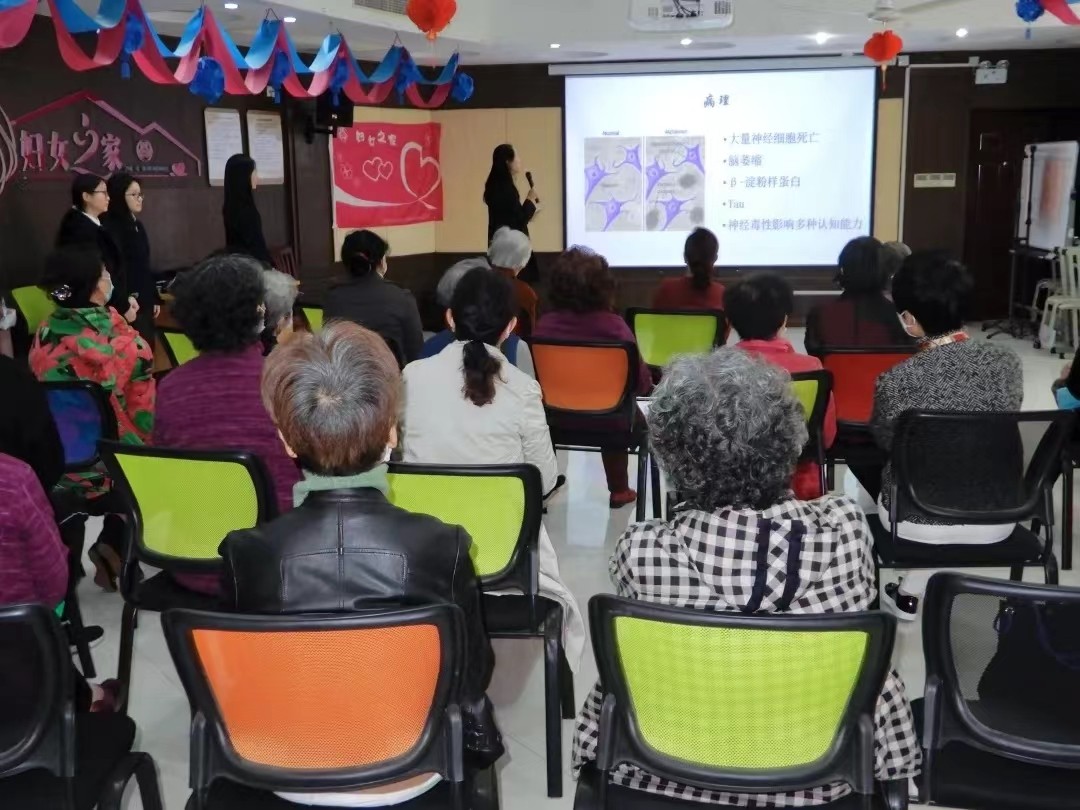
Cuky at the Alzheimer’s Disease Public Welfare sharing session
In Cuky's view, people's fear of disease often stems from the fact that they don't know much about it. In response to this, she, along with some like-minded partners, researched the latest Alzheimer’s research online and used her bilingual ability to translate it into Chinese. Once they completed this work, they shared the content through a WeChat public account for Alzheimer's caregivers, and included an audio guide to help caregivers reduce their anxiety. This project also won the CTB Alzheimer's Research Project National Second Prize and Best Research Design Award.
“Caring for others is like sowing seeds. It is a long, perhaps even
arduous process, but eventually just as the seeds grow into flowers
that blossom across the mountains and fields, rich fruit is borne from
the efforts of nurturing others. This makes me very happy,” says Cuky.
The project has not only provided benefits to society, Cuky says she has also personally gained from this project, explaining that communicating with others has taught her new methods to care for Alzheimer's patients. In the future, she hopes to continue this project alongside her academic pursuits.
A place of memories
Cuky, who has studied piano and Chinese dance since childhood, is also very fond of traditional Chinese culture – especially the elegance of Chinese dance. As a child, Cuky focused on learning the foundations of Chinese dance and achieving good grades in the subject. However, after she came to Pao School, she found that she could change her approach to it. Thanks to the professional dance studio on campus and the lack of grade-related pressure, she had ample time to explore different styles of dance and learn about them in depth.
“Chinese dance is very particular about rhythm and emotions, which makes me feel that dancing is not just a physical movement, but a silent interpretation of feelings,” she says.
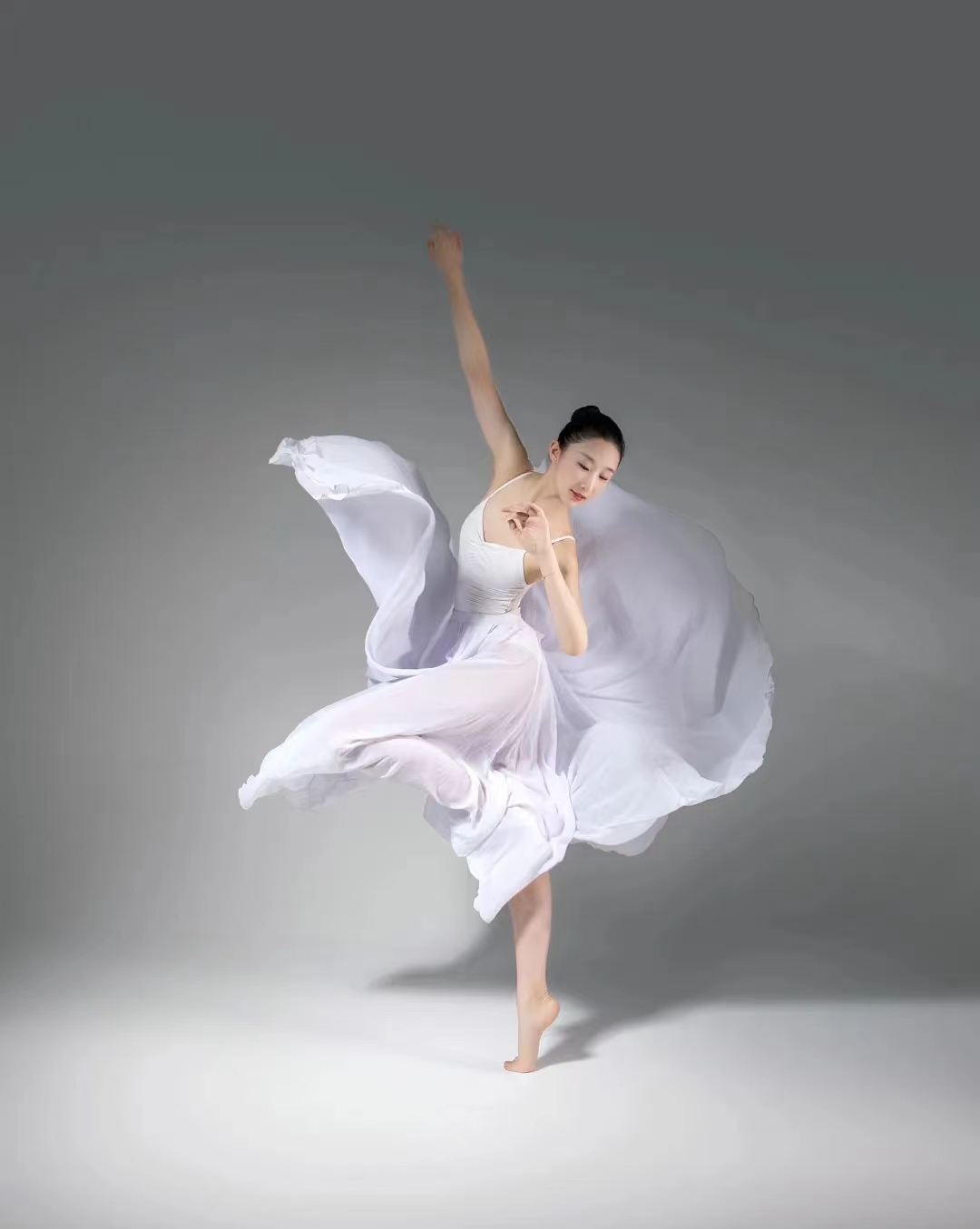
Cuky performing “White Peony”
Not only that, Cuky found that at Pao School, there were also many students who had a background in Chinese dance or who wanted to learn it. Therefore, Cuky performed Chinese dance during the morning assembly and established the Pao School Chinese Dance Club to explore the charm and diversity of classical dance with her fellow dance-loving classmates.

Cuky taking part in campus concerts and dance shows
Since then, dancing has become an integral part of Cuky’s life. She hopes that she can further hone her dancing skills in the future and combine her skill with her passion for Chinese culture to develop her own unique style. As for her piano playing, Cuky sees it as a more of a way to bring friends together. When she plays, everyone sings along joyfully; such memories last a lifetime.
“The piano room and dance studio are my favourite places at Pao School. I find
them to be therapeutic. Whenever I feel stressed out, due to classwork or for other
reasons, I always head to the piano room to play my favourite songs or go to the
dance studio to dance my troubles away. In no time at all, I feel much better.”
Pao School nurtured my idealism
Linda
Anthropology and East Asian Studies
Harvard University, USA
“Pao School nurtured my idealism, allowing me to ambitiously explore pursuits of great value, though not in the monetary sense.”
——Linda
A learning community
Before coming to Pao School, Linda never imagined that the teacher-student relationship could be so supportive. Compared to those at other schools, Pao School’s teachers are more involved in the daily lives of students. Most of the school’s tutors, for instance, are on-duty teachers who live in residence halls with boarding students. Since they live together, students and teachers at Pao School have a lot of opportunities to interact and get to know one other well. This has benefits for the students’ academic performance and social skills.

Linda notes the dedication of Pao School teachers, saying,"The teachers are passionate about what they do and that passion is passed on to us in their classes.” As a result, the classroom environment is lively, with teachers going out of their way to help students and encourage everyone to ask questions. “We can really feel how fascinating the subject matter is,” Linda says, adding that teachers make sure to respond to students’ questions even after class is over.
When it comes to boarding life, Linda is grateful for the school's fine boarding conditions and particularly appreciated living in a dorm room with a skylight in Year 12. While the students generally have cordial relations with each other, occasionally there is some friction given their different living habits. Yet this friction is also something from which everyone can learn, Linda says, adding that it was these seemingly innocuous little life experiences that taught her how to balance her own needs with those of others.
As the Head Prefect of C House, Linda's main job is to lead and organise the prefects to better serve their residence halls. This work includes recruiting students for Xueyuan competitions, in addition to discussing issues that come up in boarding life and resolving them. She also speaks regularly with the other Head Prefects about how to maintain good practices in their respective houses.
An athlete with passion for social welfare
In Year 6, Linda began to intensively practice rhythmic gymnastics, backed with the encouragement of her friends and the support of her parents. With no prior experience, she had to learn from the foundational flexibility exercises, how to use different equipment, and how to maintain the proper fitness level for the sport. In the past few years, she has worked tirelessly to become an outstanding athlete, doing flexibility training every day, participating in large rhythmic gymnastics classes twice weekly (three hours each time), working with a personal trainer, and practising six hours a day during her summer and winter vacations. After all this hard work, Linda won the title of national first-level athlete in rhythmic gymnastics during the summer after Year 9 – becoming the first person from the Shanghai Rhythmic Gymnastics Club to earn this recognition.
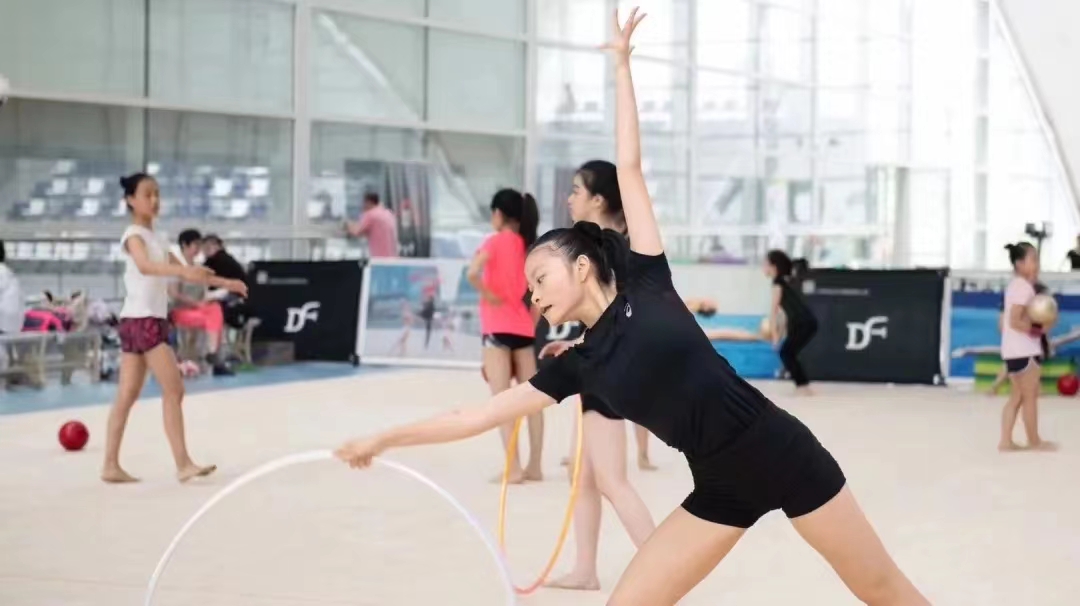
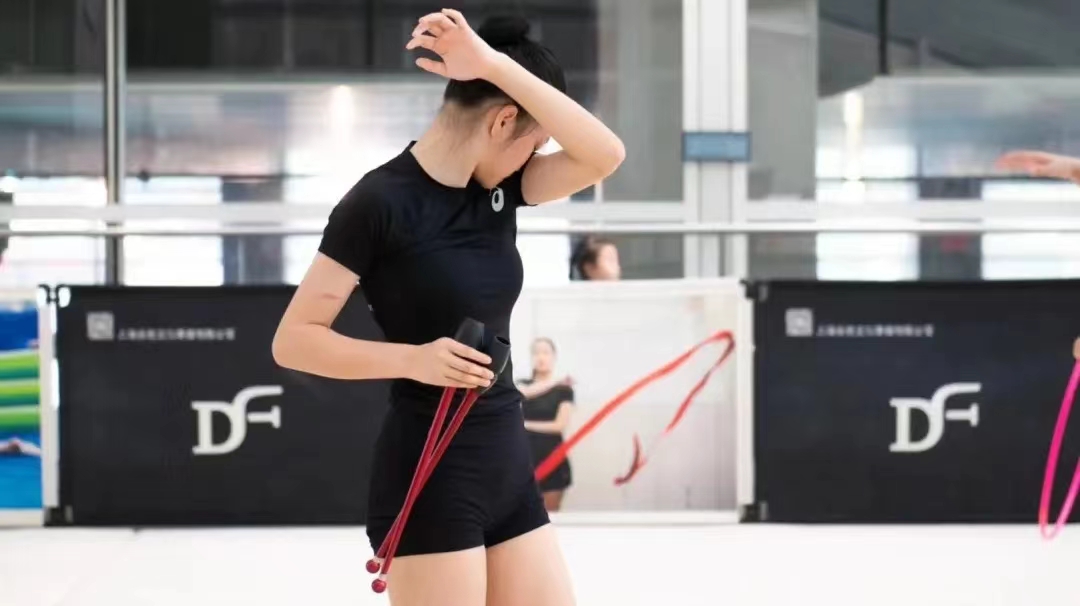
It was not easy to go from being a rhythmic gymnastics novice to a national first-level athlete in just few years. Linda was able to accomplish this impressive feat not only due to Pao School’s whole-person approach to education, but also thanks to her perseverance and positive attitude. Linda as she competed to become a national first-level athlete, she reached the limits of her physical and mental endurance. But when she was asked if she had considered throwing in the towel, she said with a smile, “No. I only thought about how I could improve my performance.”
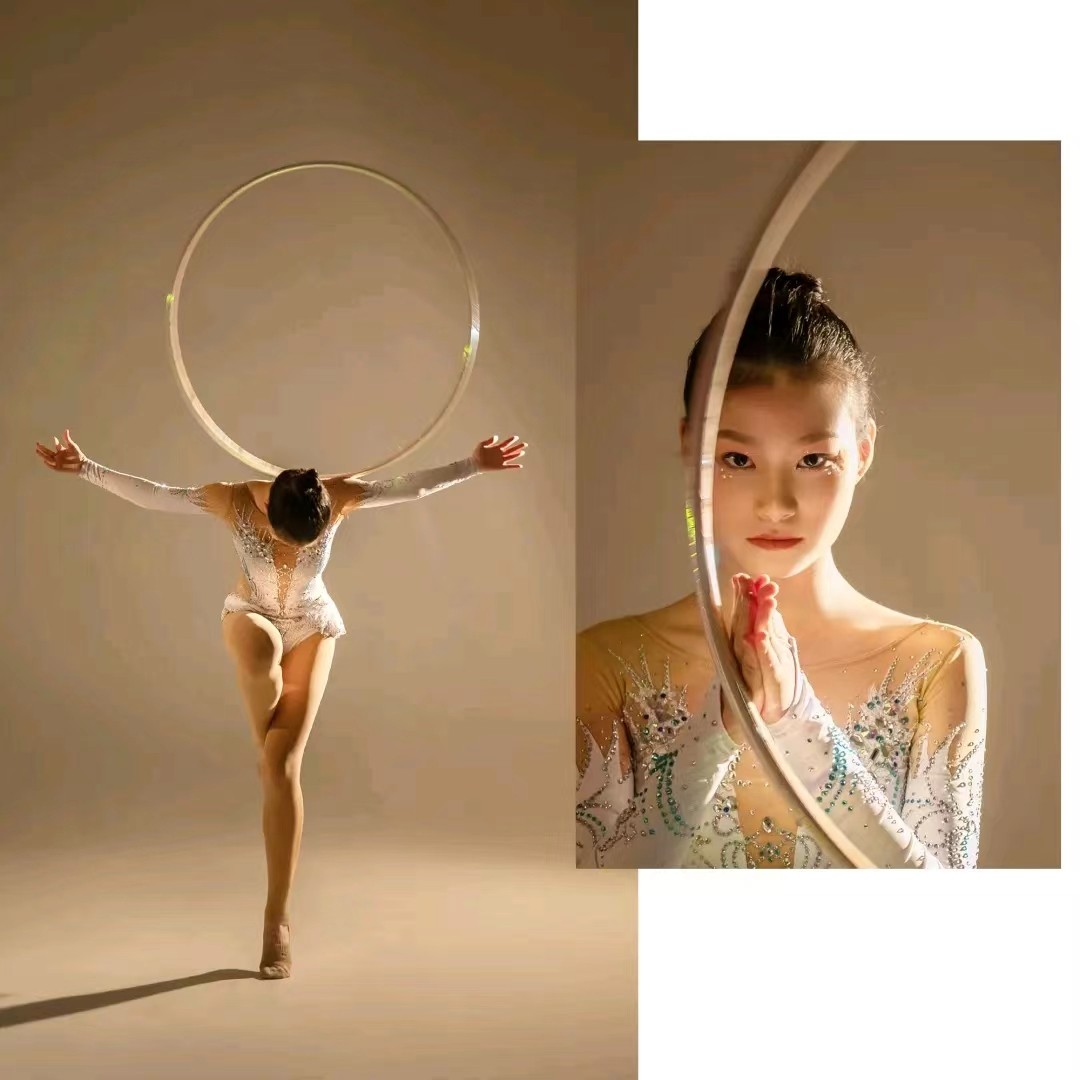
Linda’s passion for athletics led to her taking an interest in sports charity and research. She learned from her coaches and friends that some retired athletes in China faced challenges. In light of this, Linda got in touch with different sports public welfare organisations and volunteered. From creating posters, videos and WeChat public accounts, to organising courses and serving as a mentor, Linda is supporting her fellow athletes. Alongside this, she is also contributing to society through the exploration of topics such as the unequal treatment of female athletes.

While Linda had previously participated in activities to give back to society before, these specifically focused on sports, her own experience as an athlete has given her unique insight into how she could make a difference in this particular area. “I know that these athletes may have experienced some difficulty in their new careers, but sports has given them unique and valuable attributes like tenacity and sportsmanship. I want to be a voice for the people I care about, and it makes me happy to be able to help them.”
A space to grow freely and think for herself
In her IB course selection, Linda took high level history. Linda recalls that before coming to Pao School, she found history the most tedious of all subjects, explaining that she disliked rote memorisation and the fact she still never felt like she fully understood the content. After coming to Pao School, she found the history instruction and learning very different to other schools. At Pao School, teachers strive to make history come alive for students and guide them to explore different historical. In addition, the type of homework are varied, including both short and longer-form essays. Now, as a result of this rich learning environment, Linda can now critically analyse historical events, trends, and figures.

In the process of selecting her IB courses, Linda initially hesitated as three of her high level subjects require a lot of writing. She received some advice discouraging her from pursuing this course of study. Objections were made on the grounds that this was not “a cost-effective" choice, that the subject matter was too difficult, and that she could earn better grades in other courses.
But after consulting with a number of teachers and IB coordinators, Linda was confident about choosing this course of study. "The teachers at Pao School do not take the viewpoint that as ‘experienced adults’ they know better than students what the best choice should be, nor do they advise us based primarily on what think will allow us to earn the highest grades,” she says. Rather, teachers ensure students are well informed about their choices and then allow them to make the final decision themselves.
Linda believes that the two years of IB are not just about earning high grades and improving one’s chance of being admitted to a top university. Rather, the IB experience is important for personal growth, no matter the final result. In this manner, the educational philosophies of Linda’s parents and Pao School dovetail, respecting Linda's choice and encouraging her to pursue her true passions.
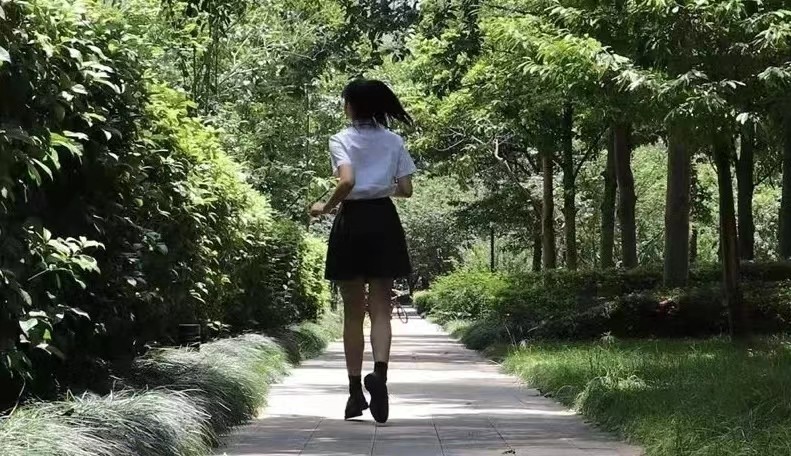
"I have always appreciated Pao School’s nurturing and supportive environment.
Looking back on Linda’s overall high school experience, it has been a process of
learning with ideals, while looking to the future but also focusing on the present.
Linda has learned to challenge the boundaries, to be successful, and also to face
setbacks. Pao School is truly special as it has a strong and enduring sense of
community. The Founders, Principal Mark Bishop, teachers, students and parents
all work together to support each other. I believe that Pao School will always be a
special place for every Pao School student!"
—— Linda’s mother